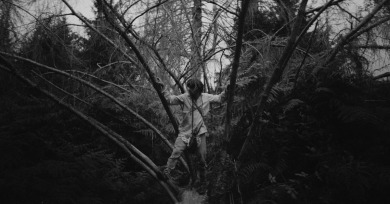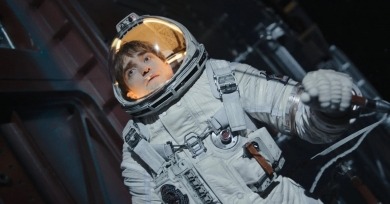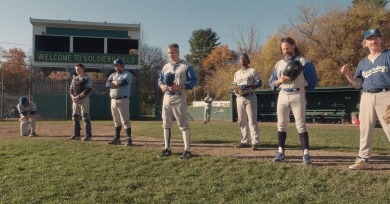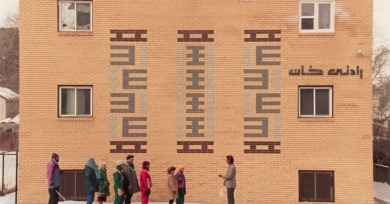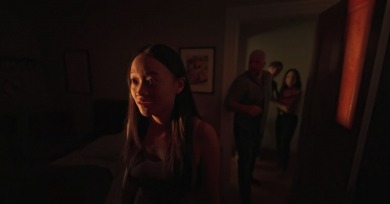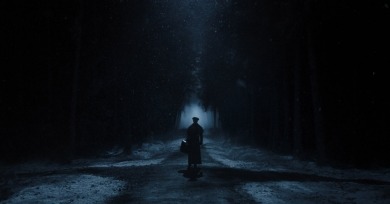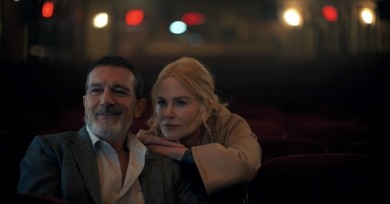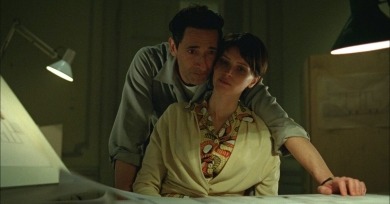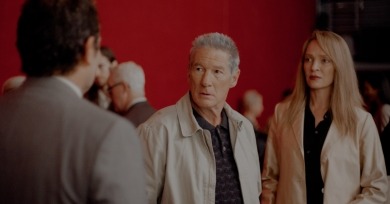Reviews
When compressed to a dry-sounding logline, The Shipwrecked Triptych is an anthology film about postwar German cultural identity and social exclusion; Eroglu is Danish-Turkish and was educated in Berlin, which frames his perspective on the country. But the film is not a history lesson.
In both On Becoming a Guinea Fowl and I Am Not a Witch, the previous film by Rungano Nyoni, women are tasked with laboring and bringing normalcy to an off-kilter world, choosing to seek out other planes of existence to forge kinships and form communities.
While the screenplay might not properly evince the feeling of being an expendable, Robert Pattinson perfectly portrays someone who has thoroughly internalized their mortality.
It is a work that highlights the incongruities and contradictions of baseball. There has not been a fictional sports movie quite like Eephus, which deliberately unravels itself at the seams.
This is not a movie that marvels at the throes of human despair, or at the preternatural resilience of one particular woman. It is instead a movie in which a mother chooses to carry on in fervid defiance, paving a way for her five children to do the same.
Matthew Rankin uses Universal Language to conduct a dialogue with Iranian cinema, utilizing hallmarks of its New Wave masters.
If A Silent Voice fixated on navigating guilt and Liz and the Blue Bird tapped into the anxieties of love, The Colors Within is all about balancing the expectations others have of us with the limitless possibilities that exist before we are pigeonholed in certain roles.
Soderbergh achieves an effectively fraught air from the jump so that his scenes, even at their stillest, vibrate with the breath-seizing possibility of menace; we are continually and acutely aware that the domestic fracases and solitary activities depicted are being witnessed by eyes without a face.
Its willingness to paint sixties establishment folkies as potentially just as extractive as their more legibly villainous record mogul counterparts would have meant something if the film had any interest in actually investigating the prickly relationship between art and commerce.
Between the writtenness of the text and the flat planes of the modernist upstate house Martha has chosen as the location to end her life, the film’s melodrama tips into abstraction.
Whatever delights the film offers are of the generic variety, teasing at thriller and melodrama conventions while constantly pulling back to the realm of the purely psychological, a tense negotiation of the raw and the sleek as unresolved and tentative as its central adulterous couple’s stabs at kink.
Shot on 35mm in shades of ominous gray by cinematographer Lol Crawley in the mid-century VistaVision format, the film is so gripping moment to moment that it’s almost convincing in its determination to be a definitive American epic.
Oh, Canada, adapted from the novel Foregone by the late Russell Banks, is engrossing and confounding, telling a story that defies simple elucidation. Usually in his films, the mode of confession is the diary. In his most recent films, his protagonists are looking to change their lives in meaningful ways.
